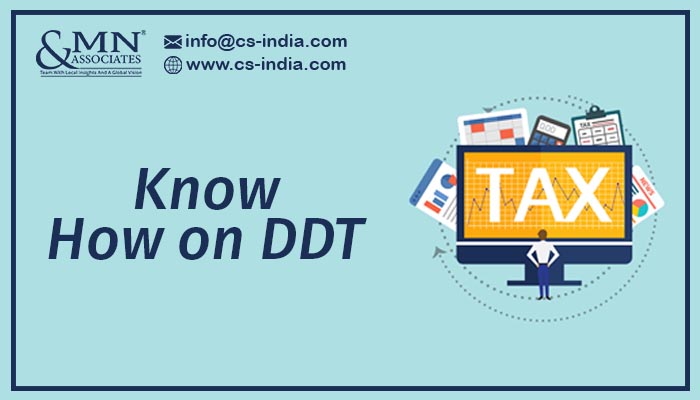
Know “How Dividend Distribution Tax is now Discontinued Distribution Tax?”
Dividends by a company are distributed out of profits generated by the company in a financial year. By paying the dividend the companies share their surpluses with the investors/shareholders. As per the current provisions of the Companies Act, dividends, as distributed by a company, are not chargeable to any Income tax in the hands of the receiver directly rather the Income Tax Act provides for a tax to be paid by companies named as dividend distribution tax.
Due to the levy of Dividend Distribution Tax, companies are made to face several hardships of additional DDT liability computations, DDT compliances, and DDT deduction from the post-tax profits of the company, etc. To save companies from all the criticism and hardships of DDT, Finance Minister Nirmala Sitharaman announced for abolishing of the applicability of DDT on companies through the Union Budget 2020.
Applicability of Dividend Distribution Tax (Before Budget 2020 )
For levy and compliances related to Dividend Distribution Tax by companies and recipients of Dividend, the present Income Tax Act Rules provide the following provisions:
- Declaration & Payment: For domestic companies, declaring or distributing dividends for any assessment year out of current or past accumulated profits, a dividend distribution tax of 15% shall be levied on such companies on the amount declared or distributed by them as a dividend. (Section 115O, Income Tax Act, 1961).
- DDT is to be paid by companies within 14 days of declaration or distribution of dividends whichever is earlier.
- Non-payment of DDT: A penal interest of 1% on the DDT amount is applicable (Section 115P, Income-tax Act, 1961).
- Exemption: Dividends received by a taxpayer from a company for up to Rs 10 lakh are exempted from payment of Income (Section 10 (34), Income-tax Act, 1961), and beyond that tax was levied at @10% beyond 10,00,000 further, the dividend from the domestic company is tax-exempt, foreign company taxable in the hand of investors.
- Taxability in the hands of the receiver: Dividends received by a taxpayer from a company above Rs 10 lakh are chargeable to Income (Section 115BBDA, Income-tax Act, 1961).
Currently, including cess and surcharges, DDT is payable by companies at an effective rate of 20.56%, and Income tax on dividend receipts by the shareholders is payable at an effective rate of 14.25% (including cess + surcharge applicable ) irrespective of their tax slabs applicable.
Applicability of Dividend Distribution Tax (Post Budget 2020)
As stated by the Finance Minister, the DDT regime is burdening compliance for both the companies and the investors. It is mandatory for the companies to compute and pay DDT to the government, while on the other hand, an investor is charged Income tax on dividend receipts at a standard rate irrespective of whether his income tax slab is higher or lower.
With the immediate effect of approval of Finance Bill, 2020 :
- Provisions of DDT will be no longer applicable to companies issuing dividends.
- Companies will be charged on their dividend distribution as per the classical system of taxation.
- Taxpayers will only become chargeable for receipt of a dividend from the company in Income tax under “income from other sources “.
- TDS (Tax deducted at Source) of 10% shall have to be deducted by companies while making payment of TDS to investors above Rs 5,000.
- The mutual funds’ companies also have to pay DDT with rates as follows:
- In the case of Debt oriented funds DDT @25 %
- In the case of equity-oriented funds DDT @10%.
The previous DDT regime on companies will continue to be applicable till 31st March 2020 and the new rules will be brought into effect from 1st April 2020.
Received Income tax compliance notice?
Talk to our Income tax expert online at info@cs-india.com
